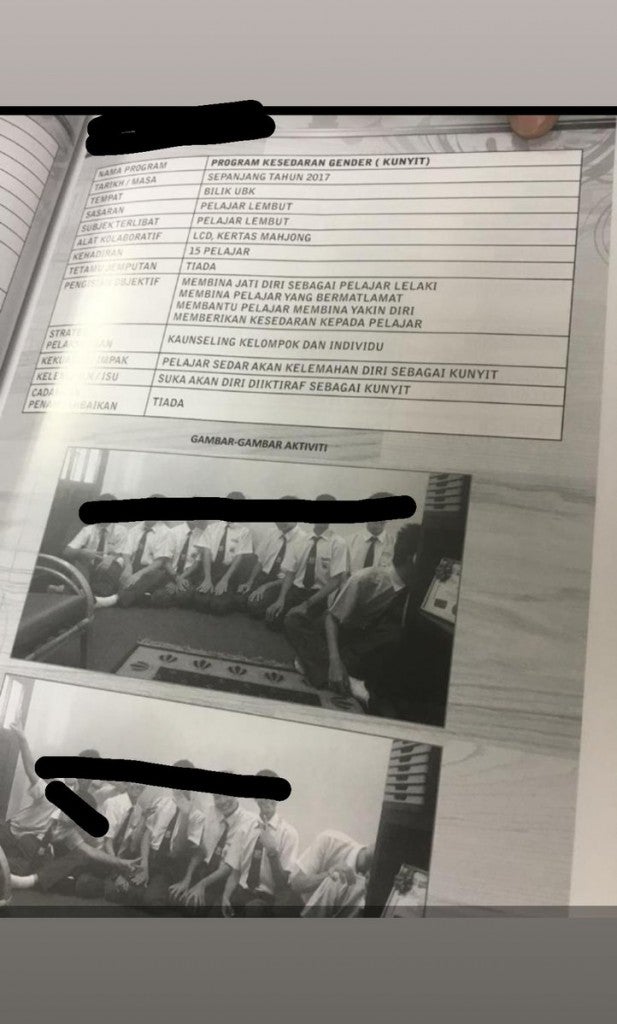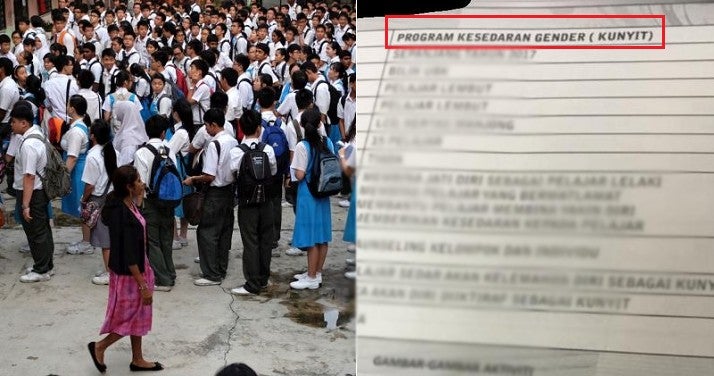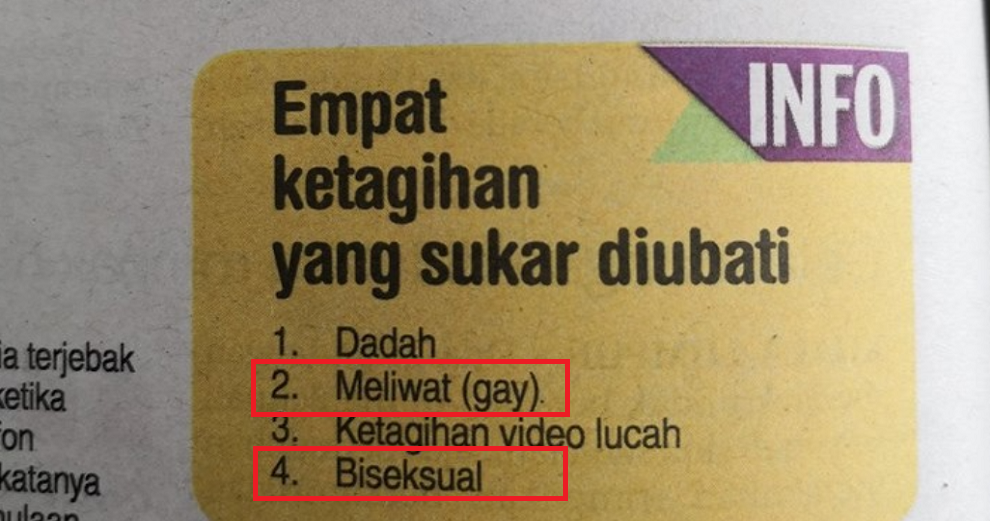This is just an outrage!
Recently, a certain picture went viral all over Twitter as it depicted something quite controversial. The viral picture is actually a page from a local school magazine.
FMT wrote that the magazine page is actually a breakdown of an awareness programme in 2017 for “soft boys” who are identified as “kunyit”. If you didn’t know, the Malay word “kunyit” is actually a derogatory term used to describe gay men.
The programme was meant to “help” soft boys build their self-esteem as males; it included group and individual counselling sessions for a total of 15 students. According to the Twitter thread, this programme was held in a famous co-ed school in Kota Kinabalu, Sabah.
You can take a look at the viral picture here:

Source: twitter
Apparently, it was supposed to help the boys set goals for themselves while aiding them to develop self-confidence. On top of that, they also wanted to “tackle” the students who identify themselves as “kunyit” while making them realise the weakness of being one.
Following this issue, FMT contacted the education ministry and the Sabah Deputy Education and Innovation Minister, Jennifer Lasimbang for an explanation on this matter but they have yet to produce a response.
FMT also reached out to the school which allegedly held the programme for “soft boys” but to no avail. Having said that, the Sabah education editor is reportedly investigating the issue.
Obviously, this matter didn’t sit well with netizens as they were outraged by the programme. Many of them thought it was disgusting and cruel.

Source: twitter
One netizen pointed out that the school should be focusing on the student’s education instead of their sexuality. True that!

Source: twitter
Another netizen reckoned that the word “kunyit” will only cause more bullying towards the “soft boys”.

Source: twitter
Well, this programme is certainly quite shocking and outrageous. We hope that the relevant authorities will look into this matter and ensure that a programme like this doesn’t happen again.
Also read: M’sian Newspaper Gets Backlash Again After Listing ‘Gay’ and ‘Bisexual’ as Addictions








































